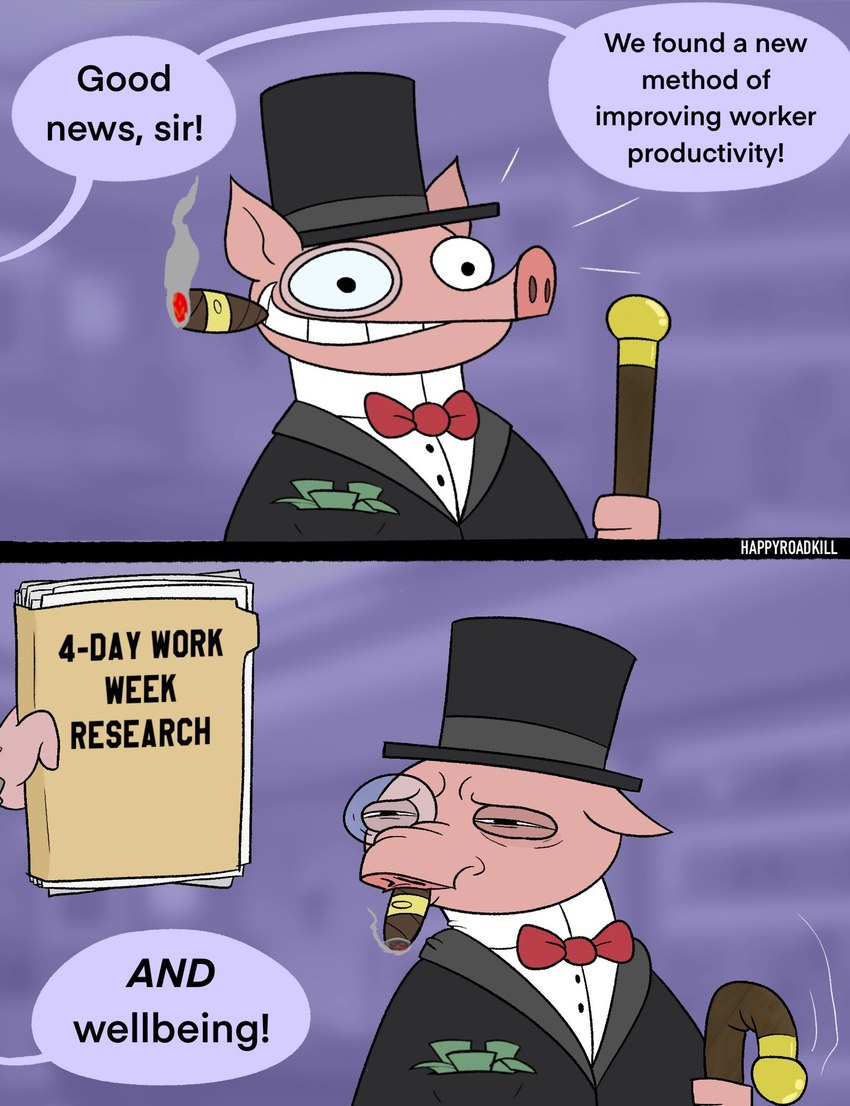this post was submitted on 15 Apr 2024
833 points (98.9% liked)
Political Memes
5669 readers
2604 users here now
Welcome to politcal memes!
These are our rules:
Be civil
Jokes are okay, but don’t intentionally harass or disturb any member of our community. Sexism, racism and bigotry are not allowed. Good faith argumentation only. No posts discouraging people to vote or shaming people for voting.
No misinformation
Don’t post any intentional misinformation. When asked by mods, provide sources for any claims you make.
Posts should be memes
Random pictures do not qualify as memes. Relevance to politics is required.
No bots, spam or self-promotion
Follow instance rules, ask for your bot to be allowed on this community.
founded 2 years ago
MODERATORS
you are viewing a single comment's thread
view the rest of the comments
view the rest of the comments

From my view, as a lowly worker, this is control. 100% about control. They don't trust you to actually do your job and they seem to believe that you'll just slack off and not do your job if you're not supervised.
Certainly, I have been aware of and even witnessed people who work from home simply to do as little as possible. But let me tell you this, it's a very small minority. From companies of hundreds of workers, there's maybe one or two that will have this issue.
There's another, fairly minor factor related to workers: basically some people prefer in-office work. The reasons they prefer it are vastly varied, but such matters are a factor.
The only other factors have to do with the employer and they all revolve around control. First, they want to keep an eye on you to ensure you're working. But all workers know how to "look busy" without doing very much at all. So this becomes a null sum. They also want the ability to interrupt you and ask questions if you on a whim, which can damage your efficiency significantly. For them, the trade off is fine, they can get their every curiosity and whim addressed immediately, which is valuable for them. The added oversight is a benefit to them too, at least, they think it is. Next, we have distractions, the bosses seem to think that you'll have more uncontrollable distractions at home, spouses, pets, children, deliveries, repair workers, etc. Stuff that they will have no awareness of nor control over.
The last point I want to make on their perspective is real estate. Companies invest so much money, month over month in order to have a place that they can house their workers while they do the job. In many cases, these are investments that they cannot easily change or escape from. If the building sits mostly empty, they have a hard time justifying it. Whether it's a lease on some office space in a business complex or if it's a land purchase with a big expensive building constructed on it, the place where you work represents a huge investment for the company. Even leases have several year terms that are not easily or cheaply broken, and it becomes very difficult to maintain their justification for that investment when there's nobody occupying it. That means either costly relocations to smaller spaces or simply filling the space with more workers. They don't want to give it up because they don't want to lose the space which may involve more costs if they need the space later.
There's a lot of fear in the last point.
With all of this in mind, the two places I've worked at where remote work became or was the norm, both either had no significant office, or reduced their office space significantly when moving to remote work. The locations where I've been pushed back into the office, they had spaces that for one reason or another, they couldn't easily downsize due to equipment requirements. They needed to house equipment for the job and couldn't easily move the equipment to downsize.
The factor that compounds all of this is that, forcing you to come to the office has no financial impact to the company. The company isn't paying for your time or transportation to get there. So it's a non issue for them. It's entirely left to their preference to say whether you work from the office or not. The time and money you spend getting there isn't of any consequence to them. So whether you need to walk down the street to the office or drive for hours each way to get there doesn't matter at all. That's a you problem.
In the end, the perceived benefits for them, of oversight, and the justification of their office space, often outweighs any possible benefit you might get from it. The perceived risks of either laziness stemming from lack of oversight is simply too much risk in the minds of managers and execs.
So many company's won't do it.